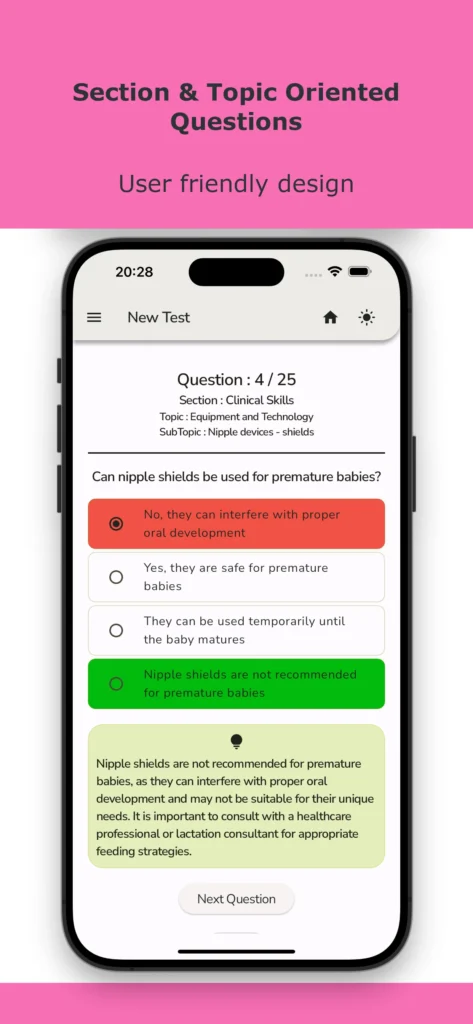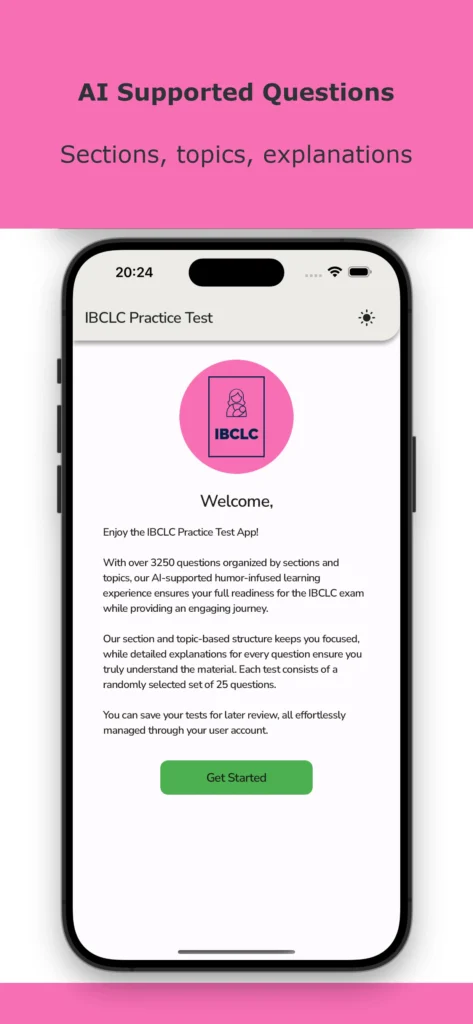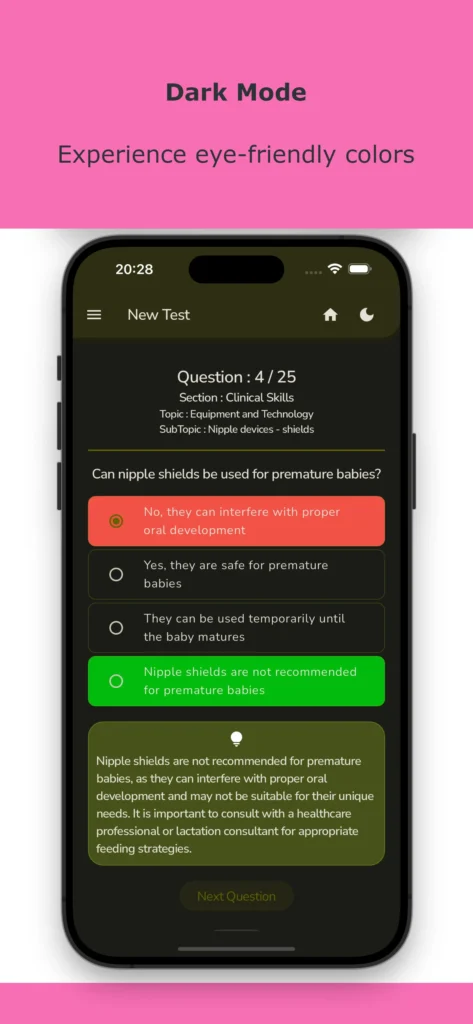Introduction
Welcome to our comprehensive guide on IBCLC continuing education! If you’re a lactation consultant or aspiring to become one, it’s crucial to stay up-to-date with the latest advancements and best practices in the field. In this section, we’ll provide an overview of IBCLC continuing education requirements and highlight some reputable providers.
As an IBCLC (International Board Certified Lactation Consultant), you play a vital role in supporting breastfeeding families and promoting optimal infant feeding practices. To maintain your certification, the International Board of Lactation Consultant Examiners (IBLCE) requires you to complete continuing education hours.
IBCLC Continuing Education Requirements
As an IBCLC, you are required to complete a minimum of 75 continuing education hours every five years. These hours are divided into two categories:
- Core Competencies: You must complete a minimum of 50 hours in the core competencies defined by the IBLCE. These competencies include lactation management, human lactation and breastfeeding, and professional practice.
- Related Lactation Specific Education: The remaining 25 hours can be completed in related lactation-specific education. This category includes topics such as breastfeeding research, infant and child health, and maternal health.
It’s important to note that a portion of your continuing education hours must be completed in specific subject areas. The IBLCE requires a minimum of 5 hours in each of the following areas:
- Communication Skills
- Counseling Skills
- Professional Ethics and Scope of Practice
- Public Health and Advocacy
- Research
Reputable IBCLC Continuing Education Providers
When selecting a provider for your IBCLC continuing education, it’s essential to choose a reputable organization that offers high-quality and evidence-based courses. Here are some well-known providers:
- International Lactation Consultant Association (ILCA): ILCA offers a wide range of continuing education opportunities, including webinars, conferences, and online courses. They are known for their commitment to promoting evidence-based lactation care.
- Breastfeeding Conferences: This organization hosts annual conferences that bring together experts in the field of lactation. Attending their conferences can provide you with valuable insights and networking opportunities.
- GOLD Learning: GOLD Learning offers online conferences and webinars presented by renowned experts in lactation and breastfeeding. They cover a wide range of topics and provide convenient access to continuing education from the comfort of your own home.
These are just a few examples of reputable IBCLC continuing education providers. It’s always a good idea to research and explore different options to find the courses that best suit your needs and interests.
Understanding IBCLC Continuing Education
What is IBCLC Continuing Education?
IBCLC Continuing Education refers to the ongoing professional development required for International Board Certified Lactation Consultants (IBCLCs) to maintain their certification. IBCLCs are healthcare professionals who specialize in providing lactation support and guidance to breastfeeding families. Continuing education ensures that IBCLCs stay up-to-date with the latest research, best practices, and advancements in lactation care.
Why is IBCLC Continuing Education Important?
Continuing education is crucial for IBCLCs to enhance their knowledge and skills, stay current with evidence-based practices, and provide the best possible care to breastfeeding families. It allows IBCLCs to deepen their understanding of lactation science, expand their clinical expertise, and stay informed about emerging trends and developments in the field. By engaging in continuing education, IBCLCs can maintain their competence and ensure that they are providing the highest quality care to their clients.
IBCLC Continuing Education Requirements
To maintain their certification, IBCLCs must fulfill specific continuing education requirements set by the International Board of Lactation Consultant Examiners (IBLCE). These requirements include:
- Completion of a minimum of 75 Continuing Education Recognition Points (CERPs) every five years
- At least 5 CERPs in each of the four areas of lactation science, clinical practice, professional development, and continuing education
- At least 10 CERPs in the area of ethics and professional conduct
- Completion of the IBLCE recertification examination every ten years
IBCLC Continuing Education Providers
There are various providers of IBCLC continuing education courses and activities. These providers offer a wide range of educational opportunities, including conferences, workshops, online courses, webinars, and self-study modules. Some well-known providers of IBCLC continuing education include:
- International Lactation Consultant Association (ILCA)
- Academy of Breastfeeding Medicine (ABM)
- Lactation Education Resources (LER)
- United States Lactation Consultant Association (USLCA)
- Association of Lactation Consultants in Ireland (ALCI)
Choosing the Right IBCLC Continuing Education
When selecting IBCLC continuing education courses or activities, it is essential to consider your individual learning needs, interests, and professional goals. Look for courses that align with your areas of practice, address current challenges or gaps in your knowledge, and provide opportunities for skill development. Additionally, ensure that the courses you choose are recognized by the IBLCE and offer CERPs that fulfill the certification requirements.
Conclusion
IBCLC continuing education is a vital component of maintaining certification and ensuring the provision of high-quality lactation care. By engaging in ongoing professional development, IBCLCs can stay abreast of the latest research, best practices, and advancements in the field. With a wide range of providers and educational opportunities available, IBCLCs have the flexibility to choose courses that meet their individual learning needs and support their professional growth.
Requirements for IBCLC Continuing Education
What are the requirements for IBCLC continuing education?
As an International Board Certified Lactation Consultant (IBCLC), it is important to stay up-to-date with the latest knowledge and skills in lactation and breastfeeding support. To maintain your certification, you must fulfill certain continuing education requirements.
The International Board of Lactation Consultant Examiners (IBLCE) requires IBCLCs to complete a minimum of 75 Continuing Education Recognition Points (CERPs) every five years. These CERPs can be earned through various educational activities, such as attending conferences, workshops, webinars, and online courses.
Of the 75 CERPs required, at least 50 must be directly related to lactation and breastfeeding. The remaining 25 CERPs can be obtained in related fields, such as infant health, maternal health, or professional development.
It is important to note that not all educational activities are eligible for CERPs. The IBLCE has specific criteria that must be met for an activity to be recognized for continuing education. Before enrolling in any course or attending an event, make sure to check if it is approved by the IBLCE.
Where can you find IBCLC continuing education providers?
There are several reputable providers of IBCLC continuing education courses and activities. These providers offer a wide range of educational opportunities to help IBCLCs meet their continuing education requirements.
One well-known provider is the International Lactation Consultant Association (ILCA). ILCA offers a variety of online courses, webinars, and conferences that provide CERPs for IBCLCs. Their courses cover a wide range of topics, including breastfeeding management, lactation counseling, and maternal-infant health.
Another popular provider is the United States Lactation Consultant Association (USLCA). USLCA offers both in-person and online continuing education opportunities for IBCLCs. They have a comprehensive directory of approved courses and events that IBCLCs can choose from to earn their CERPs.
Additionally, many universities and colleges offer lactation-related courses and programs that can count towards IBCLC continuing education. These institutions often have faculty members who are experienced IBCLCs and can provide valuable insights and knowledge.
When selecting a provider for IBCLC continuing education, it is important to consider factors such as the reputation of the provider, the relevance of the courses to your practice, and the accessibility of the courses. Choose providers that offer high-quality, evidence-based education to ensure that you are receiving the most current and accurate information.
Finding IBCLC Continuing Education Providers
What are IBCLC Continuing Education Providers?
IBCLC Continuing Education Providers are organizations or individuals that offer educational programs and courses specifically designed for International Board Certified Lactation Consultants (IBCLCs) to fulfill their continuing education requirements. These providers offer a wide range of topics and formats to help IBCLCs stay up-to-date with the latest research, trends, and best practices in lactation consulting.
When looking for IBCLC continuing education providers, it’s important to choose reputable organizations that offer high-quality educational content. Here are some tips to help you find the right provider:
1. Check the International Lactation Consultant Association (ILCA) Directory
The International Lactation Consultant Association (ILCA) maintains a directory of IBCLC continuing education providers on their website. This directory is a valuable resource for finding reputable providers that meet the standards set by ILCA. You can search for providers based on location, topic, or format of the courses.
2. Look for Accredited Providers
Accredited providers have undergone a rigorous review process to ensure that their educational programs meet the highest standards of quality and relevance. Look for providers that are accredited by recognized organizations such as ILCA, the Commission on Accreditation of Allied Health Education Programs (CAAHEP), or the Accreditation Council for Continuing Medical Education (ACCME).
3. Consider Online Options
Online continuing education courses offer flexibility and convenience, allowing you to learn at your own pace and from the comfort of your own home. Many reputable providers offer online courses that are interactive and engaging, providing a rich learning experience.
4. Read Reviews and Testimonials
Before enrolling in a course, take the time to read reviews and testimonials from other IBCLCs who have taken the same course or program. This can give you valuable insights into the quality of the content, the expertise of the instructors, and the overall learning experience.
5. Consider Your Learning Style and Preferences
Everyone has different learning styles and preferences. Consider whether you prefer live webinars, self-paced online courses, in-person workshops, or a combination of formats. Look for providers that offer a variety of options to cater to different learning styles.
6. Check for E-A-T
When evaluating IBCLC continuing education providers, consider the elements of E-A-T (Experience, Expertise, Authoritativeness, and Trustworthiness). Look for providers that have a track record of delivering high-quality educational content, have experienced instructors with expertise in lactation consulting, and are recognized as authoritative sources in the field.
By following these tips, you can find reputable IBCLC continuing education providers that offer high-quality educational programs to help you meet your continuing education requirements and enhance your knowledge and skills as an IBCLC.
Benefits of IBCLC Continuing Education
IBCLC continuing education offers numerous benefits for lactation consultants looking to enhance their knowledge and skills in the field. By participating in continuing education programs, IBCLCs can stay up-to-date with the latest research, trends, and best practices in lactation support. This section will explore the various benefits of IBCLC continuing education and why it is essential for professional growth and development.
1. Stay Current with Research and Best Practices
Continuing education programs for IBCLCs provide access to the latest research and evidence-based practices in lactation support. By staying current with the latest developments in the field, IBCLCs can ensure that they are providing the most up-to-date and effective care to their clients. This includes staying informed about new breastfeeding techniques, advancements in lactation equipment, and emerging research on breastfeeding and infant health.
2. Enhance Professional Competence
Participating in continuing education programs allows IBCLCs to enhance their professional competence and expand their knowledge base. By learning new skills and techniques, IBCLCs can improve their ability to assess and support breastfeeding families. This includes developing a deeper understanding of lactation physiology, mastering effective counseling techniques, and learning how to address common breastfeeding challenges.
3. Meet IBCLC Continuing Education Requirements
IBCLCs are required to complete a certain number of continuing education hours to maintain their certification. Continuing education programs provide IBCLCs with the opportunity to fulfill these requirements and stay in compliance with the International Board of Lactation Consultant Examiners (IBLCE). By participating in accredited continuing education programs, IBCLCs can ensure that they are meeting the necessary requirements to maintain their certification.
4. Expand Professional Network
Continuing education programs also offer IBCLCs the opportunity to expand their professional network. By attending conferences, workshops, and seminars, IBCLCs can connect with other lactation professionals, exchange ideas, and build relationships within the lactation community. This networking can lead to valuable collaborations, mentorship opportunities, and the sharing of resources and best practices.
5. Demonstrate Commitment to Professional Development
Participating in continuing education programs demonstrates a commitment to professional development and lifelong learning. By investing time and effort into furthering their education, IBCLCs show dedication to providing the highest quality of care to their clients. This commitment to ongoing learning also enhances the credibility and professionalism of the lactation consultant profession as a whole.
In conclusion, IBCLC continuing education offers numerous benefits for lactation consultants. By staying current with research and best practices, enhancing professional competence, meeting continuing education requirements, expanding their professional network, and demonstrating a commitment to professional development, IBCLCs can continue to provide high-quality care to breastfeeding families and contribute to the advancement of the lactation consultant profession.
Conclusion
In conclusion, continuing education is a crucial aspect of maintaining and enhancing the knowledge and skills of IBCLCs. It is a requirement for IBCLCs to stay updated with the latest research, techniques, and best practices in lactation consulting. The International Board of Lactation Consultant Examiners (IBLCE) has set specific requirements for IBCLC continuing education to ensure that professionals in the field are providing the highest quality care to breastfeeding families.
IBCLCs are required to complete a minimum of 75 hours of continuing education every five years. This includes a minimum of 5 hours in lactation management, 5 hours in communication skills, and 5 hours in professional ethics. The remaining hours can be obtained through a variety of educational activities, such as conferences, workshops, online courses, and self-study.
There are several providers of IBCLC continuing education that offer a wide range of courses and resources. These providers are recognized by the IBLCE and meet the standards set for continuing education. Some popular providers include the International Lactation Consultant Association (ILCA), the United States Lactation Consultant Association (USLCA), and the Academy of Breastfeeding Medicine (ABM).
It is important for IBCLCs to carefully choose their continuing education activities to ensure that they are relevant to their practice and align with their professional goals. IBCLCs should consider their areas of interest, the needs of their clients, and the latest advancements in lactation research when selecting courses and workshops.
By actively engaging in continuing education, IBCLCs can enhance their knowledge and skills, stay updated with the latest research and best practices, and provide the best possible care to breastfeeding families. It is a commitment to lifelong learning and professional development that ultimately benefits both the IBCLC and the families they serve.








